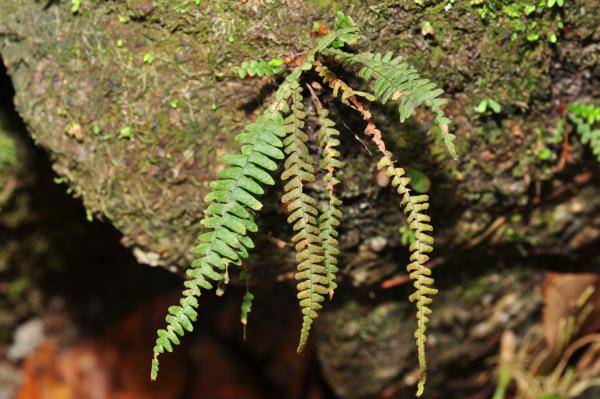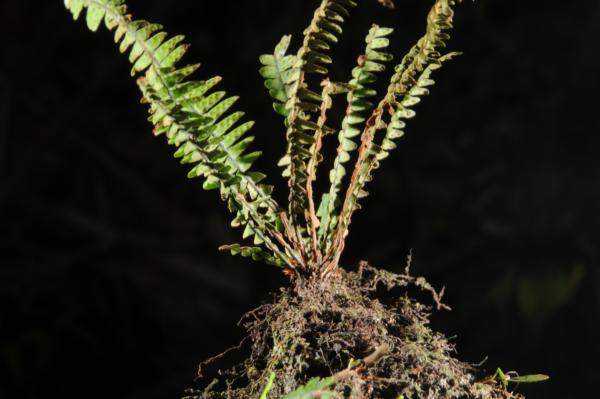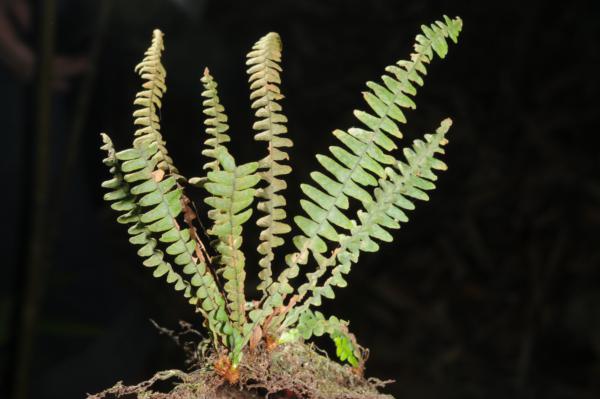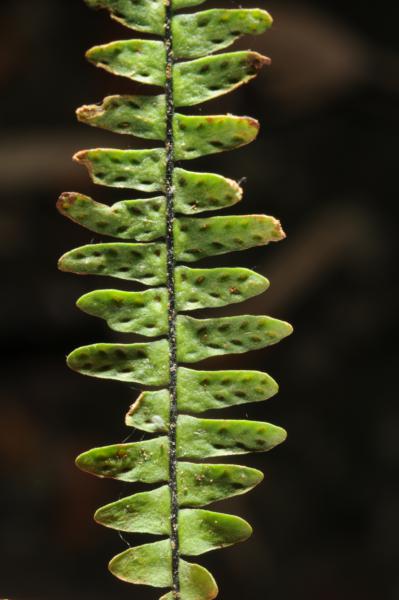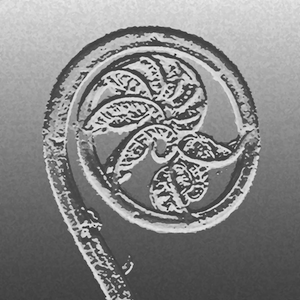
Prosaptia celebica (Blume) Tagawa & K.Iwats.
Family
Polypodiaceae
Nomenclature
Prosaptia celebica (Blume) Tagawa & K.Iwats., Acta Phytotax. Geobot. 23: 61. 1969; Boonkerd & Pollawatn, Pterid. Thailand: 293. 2000; Parris, Fl. Pen. Malaysia, Ser. I, Ferns & Lycoph. 1: 175. 2010. – Polypodium celebicum Blume, Enum. Pl. Javae.: 127. 1828; Tagawa & K.Iwats., Fl. Thailand 3: 594. 1989. – Ctenopteris celebica (Blume) Copel., Univ. Calif. Publ. Bot. 18: 225. 1942; Holttum, Rev. Fl. Malaya ed. 1, 2: 233, f. 133. 1955 [‘1954’].
Description
Description from Parris, Fl. Pen. Malaysia, Ser. I, Ferns & Lycoph. 1: 175. 2010.Stipes 9–65 by 1–2 mm; with scattered to dense simple non-septate hairs (0.5–1.3 mm). Laminae 150–500 by 30–58 mm, narrowly oblong, narrowly elliptic, linear-oblanceolate or linear-elliptic in outline, acute at apex, long-attenuate at base, pinnate, pinnae 52–86 pairs, longest pinnae 18–36 by 2–4 mm, very narrowly triangular, acute to bluntly acute at apex, entire; with simple non-septate hairs solitary or in groups of 2–5 scattered to frequent on lower surface of lamina only around mouth of coral pits (0.2–0.4 mm long), simple non-septate hairs elsewhere on lamina 0.5–1.3 mm long, occasional to sparse on lower surface of pinna midvein, sparse to scattered on lower surface of rachis, where 1–5-paired, occasional to frequent on upper surface of pinna midvein, occasional to sparse on margin and sparse to dense on upper surface of rachis, and 1–2-forked hairs 0.2–0.3 mm long occasional on lower surface of rachis; rachis prominent on both surfaces of lamina, concolorous with lamina on both surfaces; pinna midvein sometimes slightly prominent on lower surface of lamina, concolorous with it, sometimes slightly sunken on upper surface, darker than lamina; veins invisible in transmitted light, not prominent on either surface of lamina. Sori 0.7–1.1 by 0.4–0.7 mm, elliptic to broadly elliptic in outline, sunken perpendicular to plane of lamina in steep-sided pits without a raised rim which are slightly prominent on upper surface of lamina, discrete when mature, on 21–60 pairs of pinnae, in middle to apical 1/2 of lamina, 4–17 pairs on longest pinnae, in two rows per pinna, one each side of pinna midvein, in basal to middle 2/3 to ± throughout pinna except apex and base, midway between pinna midvein and margin .
Distribution in Thailand
PENINSULAR: Nakhon Si Thammarat, Songkhla.
Wider Distribution
Taiwan, Thailand, Malesia as far east as Sulawesi.
Ecology
Epiphytic in evergreen forests at 1000–1740 m alt.
Proposed IUCN Conservation Assessment
Least Concern (LC). This species is widespread and not under any known threat. It is listed as Near Threatened in the Flora of Peninsular Malaysia.
Voucher specimens - Thailand
Middleton et al. 5332, Songkhla, Ton Nga Chang Wildlife Sanctuary (E).
Habit
Rhizome and base of plant
Whole plant
Lower surface of frond
Site hosted by the Royal Botanic Garden Edinburgh. Content managed by Stuart Lindsay, Gardens by the Bay, Singapore and David Middleton, Singapore Botanic Gardens. Last updated 24 January 2012
